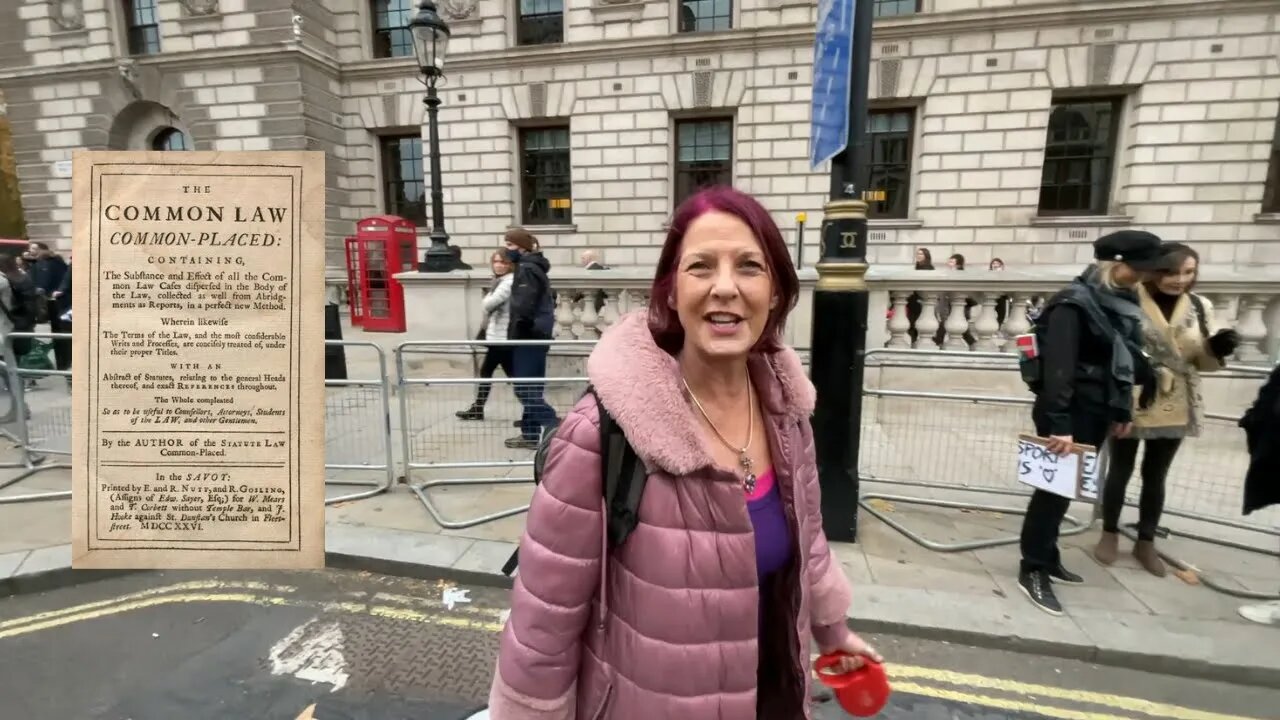Premium Only Content

Anna de Buisseret on UK Common Law, London (20.11.21)
Anna de Buisseret provides a brief description into UK Common law
Thanks for watching .If you'd like to show your support , please like and share, and feel free to leave
your comments.
https://www.legislation.gov.uk/aep/Edw1cc1929/25/9
Please consider supporting WTF is Going On by making a donation
buymeacoffee.com/WTFisGoingOn
BTC Bitcoin: 3PyYkdXjD48Bqy4qj3yDJQo4UunQUnoeku
DOGE Dogecoin: DFv3fgCtEhHJJEdcz48ZLwN4AqvreCMNK8
ETH Ethereum TRC20 Only: TBB4reNYbPM1NZ3HXyGwVnCCez7VfaNLnq
You can follow us also on:
WTF is Going On: Telegram Channel
https://t.me/WTFisGoingOnOfficial
Subscribe to the WTF is Going On odysee
https://odysee.com/@WTFisGoingOn:bb
WTF is Going On: Telegram Channel
https://t.me/WTFisGoingOnOfficial
Strawman The Nature of the Cage (A documentary About Common Law)
https://youtu.be/KG5_MJVcQnI
Common Law in England
Common law is distinguished from other forms of judge-made law from parallel court systems. In medieval times, for example, common-law courts were secular, as contrasted with the ecclesiastical courts of the Roman Catholic church. Common-law courts did not deal with merchant law, which was administered in mercantile courts, or with maritime law, administered in the admiralty court.
The most important parallel system was equity jurisdiction. Equity originated in early English law when subjects petitioned the monarch for justice. Such petitions were delegated to the lord chancellor and later to a tribunal called the court of chancery. Equity grew into a special body of rules over and above those administered in other royal courts of law. At first, common-law courts were more bound by precedent than were courts of equity, which provided remedies based on notions of fairness to litigants who were denied relief on technical grounds under common law.
By the end of the medieval period, common law and equity constituted the vast bulk of all English law. As common law became less formal and as equity accumulated its own set of precedents, these two forms of judge-made law grew closer together. Britain abolished the distinction between common law and equity in the Judicature Act of 1873. The ultimate effect of the growth and absorption of equity jurisdiction was to gradually expand the range of disputes that could be adjudicated in formal courts.
During and after the Industrial Revolution, in response to the growing complexity of law and the need for greater clarity and accessibility, the British Parliament asserted itself as the principal source of new law, modifying and adding to the body of judge-made law by statute. In modern times, the statutes of Parliament have come to encompass most legal relationships. The common law, however, remains in force to help interpret statutes, many of which are primarily restatements of common-law rules and principles.
-
 14:39
14:39
WTF is Going On
1 year ago12 YEAR OLD JASMINE DESTROYS THE 15 MINUTE CITY
116 -
 2:32:43
2:32:43
FreshandFit
11 hours agoAndrew Wilson VS Gary The Numbers Guy Astrology & Numerology Debate!
69K37 -
 LIVE
LIVE
Dr Disrespect
9 hours ago🔴LIVE - DR DISRESPECT - TRIPLE THREAT CHALLENGE - RIVALS, PUBG, WARZONE
2,673 watching -
 1:15:03
1:15:03
Dad Dojo Podcast
7 hours ago $0.03 earnedEP16: Parenting: Then vs Now
10.2K -
 53:58
53:58
Sarah Westall
2 hours agoBlack Pilled vs Learning Reality and Maintaining Perspective, AI Reality w/ Johnny Vedmore
27.2K -
 55:01
55:01
LFA TV
1 day agoJan. 6, 2021, vs. Jan. 6, 2025 | TRUMPET DAILY 1.6.25 7pm
19.3K -
 1:19:27
1:19:27
The Big Mig™
23 hours agoLimitless Health with Calley Means
29K7 -
 1:37:26
1:37:26
Redacted News
5 hours agoBREAKING! Trump Effect is Real Justin Trudeau Resigns in Disgrace
145K185 -
 49:08
49:08
Kimberly Guilfoyle
6 hours agoEnding Injustice and the 100 Day Agenda, Live with Joseph McBride and Mark Lucas | Ep. 186
43.2K6 -
 56:29
56:29
Candace Show Podcast
5 hours agoYes, Internet. I Am Pregnant...AGAIN. | Candace Ep 126
108K224